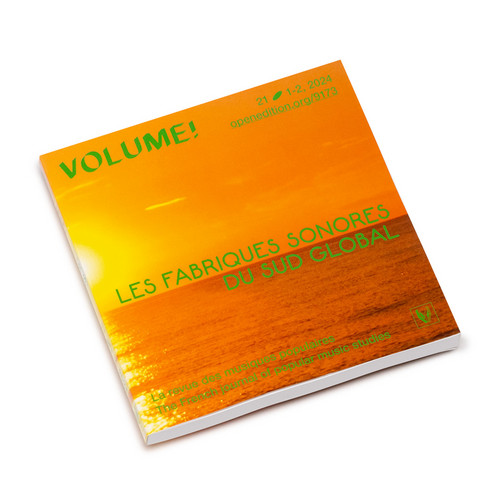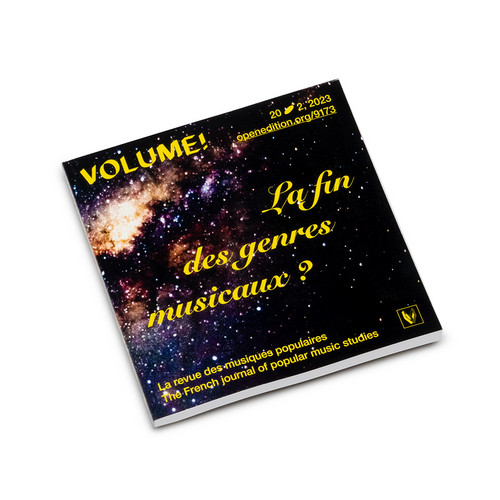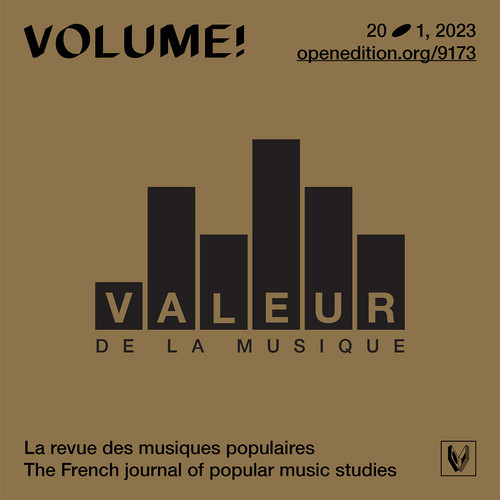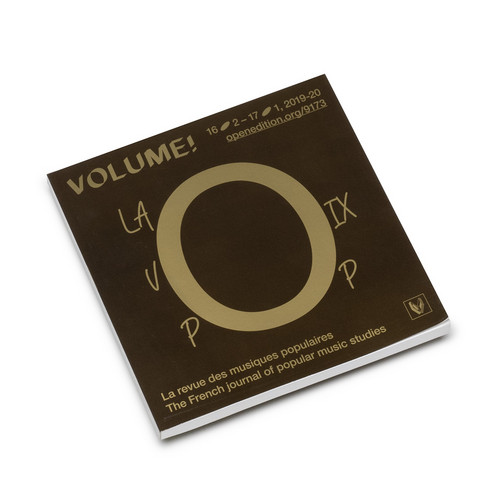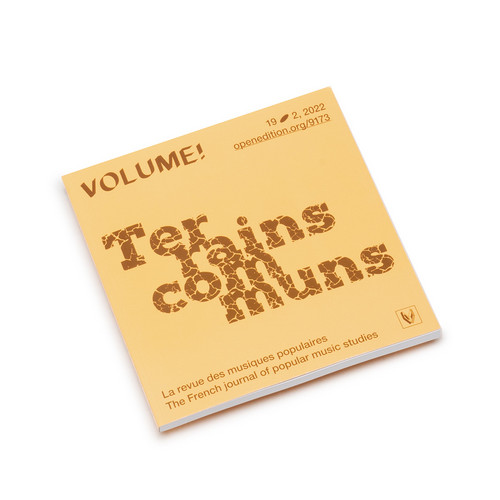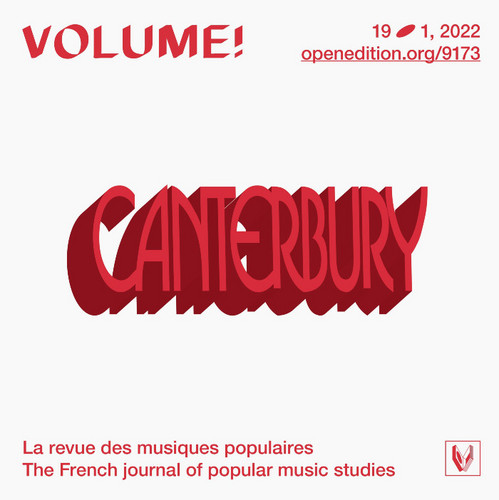★Editions Mélanie Séteun
Volume ! n° 21 1-2 – Les Fabriques sonores du Sud global (Magazine)
BIlingual Edition (Texts in French and English) Double issue of the journal of popular music studies, with a feature on the sound factories of the global South, and a look back at the 20th anniversary of Volume!. Volume! The French journal of popular music studies is the only peer-reviewed academic journal dedicated to the study of contemporary popular music. It is published biannually by the Editions Mélanie Seteun, a publishing association specialized in popular music. The journal is in French…
Volume ! n° 20-2 – La fin des genres musicaux ? Catégoriser les musiques populaires (Magazine)
A historicist approach of music genres. Recent journalistic discourses have announced "the end of music genres", while common sense tends to perceive the latter as imposed categories, restricting the freedom of both artists and audiences In contrast to this preconceived idea, this special issue of Volume! draws on a historicist approach of the phenomenon to discuss the formation and development of music genres such as disco and dance, traditional music, heavy metal, dungeon synth, urban music, i…
Volume ! n° 20-1 – La Valeur de la Musique (Magazine)
Focus on the question of the economic and cultural value of music, which has re-emerged with the advent of streaming platforms.
Volume! The French journal of popular music studies is the only peer-reviewed academic journal dedicated to the study of contemporary popular music. It is published biannually by the Editions Mélanie Seteun, a publishing association specialized in popular music. The journal is in French with some non-translated articles in English. Volume! was established in 2002 under …
Volume ! n° 16-2 / 17-1 - La Voix Pop (Magazine)
2024 stock. This issue explores the crossroads, contacts and contrasts between two fields of musical knowledge: ethnomusicology and popular music studies.When ethnomusicology tackles music that is produced in recording studios in both the North and the South, when queer performances venture into Asturian folklore, when bureaucracies produce world music, when raggadub and punk from Marseille are observed from the radios, restaurants and streets they have stemmed from, when Mandingo music is analy…
Volume ! n° 19-2 - Terrains Communs (Magazine)
This issue explores the crossroads, contacts and contrasts between two fields of musical knowledge: ethnomusicology and popular music studies.When ethnomusicology tackles music that is produced in recording studios in both the North and the South, when queer performances venture into Asturian folklore, when bureaucracies produce world music, when raggadub and punk from Marseille are observed from the radios, restaurants and streets they have stemmed from, when Mandingo music is analyzed as a mai…
Volume ! n° 19-1 - La Scène de Canterbury (Magazine)
The analysis, history and reception of the Canterbury music scene between the late 1960s and early 1970s. From the band Soft Machine supporting Jimi Hendrix on tour in the US in 1968, to Robert Wyatt's famous Rock Bottom album later, to the bands Caravan and Hatfield and the North: the artists and music of the Canterbury scene in England gave a specific and colourful stamp to rock music in the late 1960s and early 1970s. With their commitment to unpredictable stage behaviour and radical humour, …
